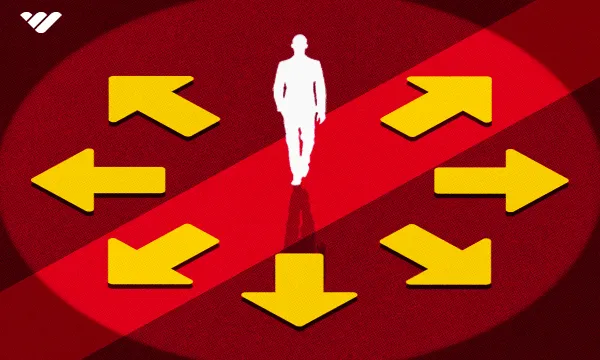Whether you’re an established e-commerce venture or a budding entrepreneur, it’s likely that you’ve been advised to enter a partnership at some point down the line. Doing so does have negatives, but the consensus is that it has the potential to be a game-changer for your business. The trick, however, lies in finding the right business partner for you and your start-up.
This guide will take you through the benefits of joining forces with a business partner, and the main things to look for in a partner to ensure the best results for your venture.
Why Establish a Partnership? 🤝
Whether starting a business or taking an existing operation through the gears, you’re likely to face a significant number of challenges as you go. While exhilarating, and definitely rewarding, you may at some point feel like you’re devoting as much time and effort to your business as you can but it simply isn’t enough.
One of the biggest ways a partner can help is to share that workload, and pooling skills and expertise helps to optimize the business. On top of that, a business partner could also contribute in a financial sense, which may give you the impetus to get off the ground or ramp up to a critical mass.
5 Things to Look For In a Business Partner
Taking on a business partner can forever change your business. As with any such fundamental step, it’s wise to take your time with the decision and select a business partner who’ll be good for you and your business. Here are five of the main things to look out for:
#1. Alignment of Values and Goals
Shared values is top on this list for a reason, since major disagreements on a strategic level or with respect to the vision of the business can have huge repercussions. It’s a common adage that a business partnership is similar to a marriage, and that holds especially true when it comes to a shared set of values and common goals for the business, and stewarding things in a consistent direction and surviving the peaks and troughs of commerce.
Goals are a little more straight-laced than values, and it’s a good idea to commit them to paper in order to have a reminder of what was agreed down the line. Documentation of goals can also help prevent conflicts and disagreements later on if one partner’s expectations shift too drastically from where they were when the partnership was inked.
#2. Communication
Another way a business partnership mirrors a marriage is in how important communication is. Miscommunication or a breakdown in communications can sink a company faster than anything else, so partners who find communication with each other easy and effective tend to work well. If you find yourself hesitant when communicating with your business partner, or don’t feel listened to or understood, you should start reconsidering your options.
#3. Overlap of Skills and Expertise
A successful business needs a lot of skills and attributes that, once the venture hits a certain point, can’t adequately be filled by just one person. It’s hard to be both an excellent visionary and executor of ideas simultaneously, and having an eye for optimization and efficiency may not go hand in hand with top sales skills.
That’s where partnerships can really help. If you’re a creative person, a more analytical partner will help round out the needs of the business—if you’re an ideas guy, find someone who can execute what you dream up. It’s also useful to have a partner who’s either more or less ambitious than you are, since one can provide the impetus while the other occasionally applies the brakes to keep things realistic and achievable.
#4. Availability and Commitment
This can be a tricky one since everyone’s life places different demands on them, but it’s good to either have similar levels of availability and commitment or draft an agreement of expectations from the get-go. If you’re committed 24/7 but you can barely manage to get hold of your partner for a meeting every couple of days, you may have a problem if you didn’t know (or agree to) that going in.
It could well be that you’re willing to accept different levels of commitment, but documentation is your friend in this case. It’s also a good idea to consider different levels of equity for different levels of commitment.
#5. Trustworthiness and Reliability
This should be taken for granted, but can’t. Be wary of potential partners who sell themselves well but fail to deliver—you need a business partner who satisfies all of the previous conditions but can also be trusted to hold up their end of whatever bargain you make with them. Even if your business partner is an investor who commits to one video call a month, you want to know that they’ll be there for that call when you need them.

Benefits of Having a Business Partner
Joining forces with the right business partner can provide you and your business with a lot of benefits. Here’s a look at just a few of them:
- Shared workload: Burnout and stress are two worryingly common pitfalls when it comes to entrepreneurship, so by having someone share some of the burdens, you can safeguard your own stress levels and mental health.
- Optimize tasks: If ideas are your forte, you may find yourself getting bogged down and take far too long for things in the execution realm. Having a partner allows you to allow each to work to their strengths.
- Second set of eyes: Problem-solving is far easier when it isn’t just you on the job, and a business partner can provide different ideas and perspectives. This also helps to avoid tunnel vision when it comes to business decision-making.
- Shared risks: You can reduce personal exposure to financial risk with a partner on board, especially when switching from a sole proprietorship to a partnership structure. Remember that incorporating your business or forming an LLC can help even more in this regard.
How To Find a Business Partner
Now that you know the benefits of having a partner and what to look for, it’s important to acknowledge that partnership is a two-way street. Potential partners will be evaluating you and your business in the same way, so it’s important to take certain steps to increase your odds of attracting the best possible business partner.
#1. Have a Strong Business Plan
If you’re still in the founding or ideation stage of the business, a well thought out business plan is your best friend. With the aid of a good business plan, you can give potential partners a good look at your business and whether they might be a good fit.
#2. Update Your Online Presence
The first thing a potential partner is going to do after hearing about you or having you contact them is search for the online presence of both you and your business. As such, it’s a good idea to try and clean up your own personal online footprint and make sure your business looks as good as it can online.
#3. Start Networking
This works online just as it does in person, since finding a business partner is all about leveraging your network. Reach out to whoever you can, and even ask other entrepreneurs for advice. Word of mouth is the most powerful marketing tool out there, and you never know which one of your friends, acquaintances or associates might realize someone they know is a perfect partner for you.
#4. Check Online Entrepreneur Communities
If your own personal network is limited or just doesn’t bear fruit, there are plenty of online resources and websites designed specifically to connect entrepreneurs and small businesses. Good network matchmaking websites are out there, and even social media platforms like Reddit and LinkedIn can work for this.
The Partnership Agreement
Once you’ve found a partner, remember that there are still a few steps that you ought to consider even if you and your new partner agree on practically everything. A partnership or founding agreement can help you put at least a few tenets of the partnership on paper, covering how to handle things like:
- Business vision and goals
- Compensation and equity breakdown
- Roles and responsibilities of partners
- Intellectual property management
- How disputes will be settled
- How partnership dissolution will be handled
What Whop Can Do For You
If you’re already selling your products on Whop, you’re serious about e-commerce and know how to run a business. If you’re thinking about taking the leap from a sole proprietorship to a partnership or just looking to bring someone else on board, Whop has tools for you!
Foremost among these is the Whop Business Dashboard. It’s the heart of your operations on Whop, but you can set it to allow your business partner as well as your employees to access your storefront. There are no limits with the Whop Business Dashboard, and it offers unlimited access for your team!
Finding Your Perfect Business Partner
Getting the right business partner or team on board can be a game-changer for your business. Whether it’s complementing your own skills and filling out potential gaps in your operations with a proven track record or providing you with the right balance when it comes to ideation and execution, partnership can be a huge step and massive driving force for any e-commerce venture.
Whop’s Business Dashboard can help you through this expansion by letting your partner and every single member of your team access and manage your storefront, with permissions defined by you. If you aren’t already, get familiar with your Whop Business Dashboard today and unlock unlimited potential.
👉 Want to find out more about selling on Whop? Visit Whop.com/sell/ to get started.





